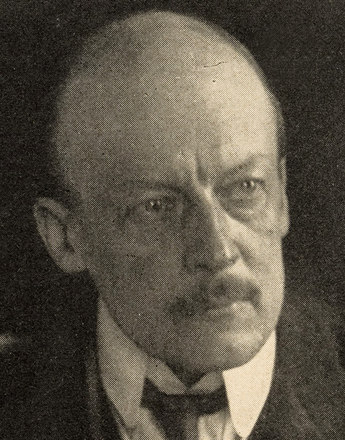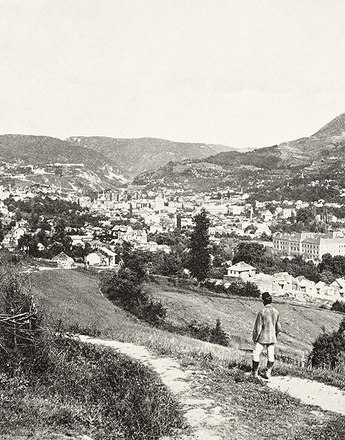Schumpeter’s imperialism theory: Did big business press for war?
As in most of the colonies that Germany, Austria Hungary's ally, had occupied before the First World War, there was, to put it bluntly, little to be obtained commercially in Bosnia-Herzegovina. From an economic point of point of view, how much sense did such conquests make? Did commercial considerations play any major role at all in connection with the outbreak of war?
In contemporary Marxist theory (such as in Lenin's “Imperialism as the highest stage of capitalism”), big business was accused of having aggressive imperialist ambitions. In Austria-Hungary, such tendencies do not appear to have been present, or at least not to a significant extent. The Habsburg Empire was economically far too weak to pursue an outwardly aggressive policy of capital invasion. Later Marxist theorists therefore spoke of an “internal imperialism” that was expressed in investments by the Viennese banks in the underdeveloped peripheral regions of the Empire, where rich resources, such as oil in Galicia, were waiting to be tapped.
An imperialism theory that took account of the special features of developments in central Europe was elaborated by the famous Austrian economist Joseph Alois Schumpeter immediately after the end of the war. He rejected the Marxist position, and formulated the connection between business calculation and political expansionism much more loosely, attempting to define “imperialism” in both historical and geostrategic terms. In the war that had just ended, he saw the work of an unholy alliance between the old military ruling classes (who controlled foreign policy and the army) and the aggressive representatives of heavy industry that had led down the path to war. Shumpeter’s theory fits well into the picture that prevailed in the Austro-Hungarian Empire in 1914, and is corroborated by an anecdote by the banker Rudolf Sieghart referred to earlier: When, in the days before the outbreak of the war, he was discussing the risks of a war with Serbia's ally Russia, with Count János Forgách, a close confidant of the Foreign Minister Leopold Berchtold, the reply, “presented with an indescribable mixture of indifference and arrogance”, as the banker commented, was a succinct “Well, then, that’s how it will be.”
Schumpeter raised comments like this to the level of theoretical reflection, arguing that imperialism in the years before 1914 had “inherited the war machine, its social atmosphere, and the martial will” and “a martially oriented class maintained itself in a ruling position with which of all the varied interests of the bourgeoisie the martial ones could ally themselves. (...) This alliance keeps alive fighting instincts and ideas of domination that otherwise would have died long ago”, and threatened Europe with the permanent risk of war.
Translation: David Wright
Clark, Christopher: Die Schlafwandler. Wie Europa in den Ersten Weltkrieg zog, München 2013
Janz, Oliver: Der Große Krieg, Frankfurt am Main 2013
März, Eduard: Bankpolitik in der Zeit der großen Wende 1913–1923. Am Beispiel der Creditanstalt für Handel und Gewerbe, Wien 1981
Rauchensteiner, Manfried: Der Erste Weltkrieg und das Ende der Habsburgermonarchie, Wien/Köln/Weimar 2013
Schumpeter, Joseph A.: Zur Soziologie der Imperialismen, in: Aufsätze zur Soziologie, Tübingen 1953, 74ff
Quotes:
“presented with an indescribable mixture …“: Sieghart, Rudolf: Die letzten Jahrzehnte einer Großmacht, Berlin 1932, 174 (Translation)
“inherited the war machine …“: Schumpeter, Joseph A.: Zur Soziologie der Imperialismen, in: Aufsätze zur Soziologie, Tübingen 1953, 145-146 (Translation)
-
Chapters
- The underlying causes of the First World War
- The folly of the erstwhile rulers
- Schumpeter’s imperialism theory: Did big business press for war?
- A state living beyond its means
- Problems of the war economy
- High mark and decline of the economic war effort
- Shifts in the production structure
- The change in the social balance of power in the course of the war




